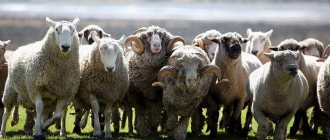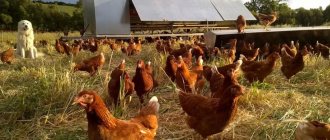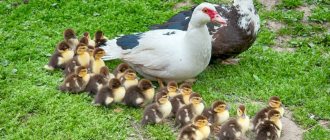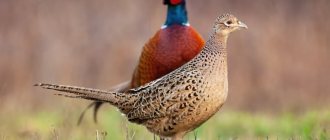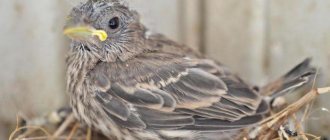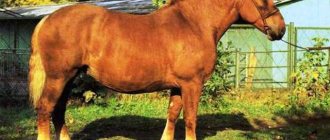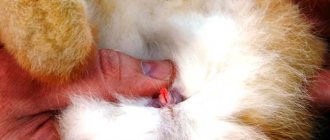About vaccination
Any owner who raises rabbits commercially or keeps ornamental animals as pets should understand that all types of rabbits require vaccination. These animals are susceptible to various diseases, including diseases that pose a threat to humans. Of course, it is wiser to prevent diseases than to treat them later, especially since some of them cannot be treated at all.
There are a number of vital vaccinations for rabbits.
Vaccines are designed to produce immunity in an animal against a specific pathogen. Sometimes rabbits may develop symptoms after vaccination, but the illness is mild and the risk of contracting the same infection in the future is minimal.
Microbes of various infections are transmitted to rabbits through contact with each other and other animals, through insect bites, while walking, eating food and drinking water. Therefore, even those pets who spend their entire lives in an apartment with caring owners are not immune from diseases.
Rabbits during pregnancy can also be vaccinated with any vaccine at different times (inactivated polyvalent drugs work better), but it is better to immunize them in advance. The only contraindication is the lactation period, since vaccination of the female can negatively affect the health of the newborn young. For breeding rabbits, the necessary vaccinations must be completed several weeks before mating. This ensures the animals' immunity to dangerous diseases and protects future rabbits.
Types of Vaccines
All vaccines can be divided into two types: live and inactivated. The former allow the body to quickly develop immunity to the disease, which is especially important during epidemics. However, such vaccinations are quite well tolerated by animals, since the body has to deal with live microbes.
A feature of inactivated drugs is that they are easily tolerated by animals and provide longer-lasting and more defined immunity. The effect of vaccination appears later, so such vaccines are used for prevention when there is no outbreak of the disease.
The type of vaccination is chosen by the owner after consultation with a veterinarian.
Vaccines can also be classified as monovalent, bivalent, trivalent or multivalent (complex). The name depends on the number of viruses against which the vaccine is directed. Many breeders consider it more practical to use combined vaccines for rabbits, which protect animals from 4-5 diseases simultaneously and are easier to tolerate by animals because they contain inactivated pathogens. Moreover, vaccination with multivalent vaccines is cheaper compared to the cost of purchasing several monovalent vaccines.
Necessity or waste of money
Let's figure out whether rabbits need vaccinations, and when you can do without them. It is an axiom that it is mandatory to vaccinate animals, and you just have to remember it. Experienced rabbit breeders have no doubt about this, but for beginners we will explain.
There are two reasons why it is necessary to vaccinate regular (meat) and decorative rabbits. Firstly, even animals kept in perfect cleanliness and fed with high-quality feed can get sick, as they are very sensitive and whimsical.
Secondly, a vaccine for rabbits is the only chance to save an animal’s life if it becomes infected. And all because most diseases for representatives of the hare family are fatal, and there is no cure for them. So all that remains for rabbit breeders is to take care of the animals and try to anticipate the appearance of infection through timely vaccination.
What diseases are rabbits vaccinated against?
There are 3 mandatory injections, without which rabbits cannot participate in exhibitions, competitions, transport across borders and mating. In addition, unvaccinated infants have a low chance of survival.
Rabbits receive immunity from their mother at birth by ingesting immune cells in milk. After feeding, they remain defenseless against the outside world and infections. Often it is immature young individuals that die.
The most dangerous disease is rabbit viral hemorrhagic disease (RVHD). This virus appeared in the 1980s, probably in China. It is transmitted from rabbit to rabbit through contact, using the same bedding, cage, bowl, even walking on the same ground. Humans may not be susceptible to this infection.
The fur of infected rabbits is also opaque
sen, it must be ventilated for 3-4 months before sale (at the same time, demand and price drop by 2-3 times). Symptoms: mucus from the nose, lack of appetite, fever, convulsions.
Myxomatous infection transmitted by contact from mosquitoes. Manifests itself in the form of swelling of the mucous membranes, purulent conjunctivitis, painful tumors, neoplasms, blisters, crusts; secondary to genital complaints.
Translated and developed within a week. Unlike VGBK, cure is possible, but subject to a quick response to the first symptoms.
Rabies is a rare disease among rabbits, but has been gaining popularity in recent years. When transporting pets, vaccination is mandatory.
The virus is dangerous for humans ; a sick animal cannot be saved. Manifested by profuse salivation, aggressive behavior, epilepsy, photophobia. Rabies is an incurable viral disease of the central nervous system.
The disease is transmitted through the saliva of a sick animal (via a bite), so if while walking in the yard the rabbit is attacked by a wild dog (cat/fox/bat), you need to immediately isolate it and monitor its condition. Typically the incubation period is about 2 weeks. Then appetite disturbances, automutulation, and cyclical transitions from inhibited behavior to abnormally active ones occur.
Optional vaccines
The presence of these vaccinations is not established in the statutes of breeding organizations and agricultural farms. But to avoid an epidemic among young rabbits, it is better to protect yourself with additional procedures.
Veterinarians recommend injections against the following diseases:
Salmonellosis. A virus dangerous to all mammals, even humans. It is transmitted by contact through bedding, bowls, shoes, and soil. The infection kills the lung tissue and digestive organs and manifests itself in the form of diarrhea, acute poisoning, and nasal discharge.
Listeriosis. An incurable disease characteristic of pregnant rabbits and young rabbits. The disease affects the central nervous system and is spread by rodents. Causes paralysis, abortion, stillbirth. It is transmitted to people.
Pasteurellosis. The infection develops in the bodies of dead animals and is transmitted by airborne droplets through contaminated food. It causes redness of the mucous membranes, fever, diarrhea, nasal discharge and difficulty breathing.
Although vaccination against these diseases is not mandatory, this does not make them any less contagious or dangerous. The mortality rate for salmonellosis is 90%.
Table of veterinary measures on a rabbit farm
As promised at the beginning of the article, we tell you when to vaccinate against the rabbit virus, against what diseases and what is the dosage of the drug. Let’s immediately make a reservation that we will tell you the general picture of immunization and give examples of monovalent sera.
The table shows the vaccination scheme for rabbits without taking into account optional vaccinations, since we discussed them in detail above.
We have given only one version of the immunization schedule on a rabbit farm. But each breeder must have his own calendar, where all vaccinations given will be noted. This will allow you to administer the drug in a timely manner and prevent the occurrence of diseases. Over time, you will understand how important it is to keep such records.
Vaccination dates
Rabbits are vaccinated and revaccinated alternately depending on their age. For rabbits that have not gained weight, vaccination is delayed.
The average cost of vaccination in the clinic is 200-400 rubles.
| Age | Vaccine/disease | Route of administration and dose |
| 28-30 days | Myxomatosis | 1 cm3 intramuscularly |
| 1.5 months | VGBK | 0.5 cm3 intramuscularly |
| 3 months | Sollicox/Coccidiosis | Per 1 kg 0.4 ml with food (2 days in a row) |
| 4 months (and every 6 months) | Myxomatosis (revaccine) | 1 cm3 intramuscularly |
| 4.5 months (and every 6 months) | VGBK | 0.5 cm3 intramuscularly |
| 6-7 months (and annually) | Rabies | As recommended by your veterinarian |
Warning: dangerous virus
Since we are telling you about what and when vaccinations to give a rabbit, we are obliged to dwell in more detail on myxomatosis. This is one of the most dangerous viruses, and without immunization the baby rabbit will die in 80-100% of cases. The disease is transmitted by mosquitoes. Above we told you how best to protect yourself from them.
But it is still necessary to vaccinate your rabbit against myxomatosis. The vaccine is administered to animals of all ages and in all areas, regardless of their reliability. Such reinsurance is necessary, because it only takes one individual to become infected with the virus, and an epidemic will begin on the farm in a matter of days.
To protect pets from the virus, they are injected with the drug “RIBBYVAK B”. This is a monovalent associated vaccine that provides immunity for 12 months. But polyvalent drugs also contain an antivirus for myxomatosis. For more information about their action and technology of application, read the article “Use of associated vaccine for rabbits.”
Animal preparation
Rabbits must be properly prepared for vaccination. Otherwise, the animal may react to the vaccine more strongly than usual, and the immunity acquired thanks to it will not last long.
Before vaccination, the doctor must first conduct an external examination of the rabbit.
Only completely healthy animals are allowed to be vaccinated. Therefore, before the procedure it is necessary:
- Deworming (or prophylaxis) is carried out 2 weeks before vaccination.
- Observe the animal for 2-3 days before vaccination. Make sure that the animal's behavior does not deviate from the norm, the feces are normal, and there is no discharge from the eyes or nose.
- Measure your rabbit's body temperature the day before vaccination and immediately before the procedure itself. The norm is 38.5-39 ℃.
If the owner does not vaccinate at a veterinary center, but on his own, take care of a fast-acting antiallergic drug. The risk of an allergic reaction in your pet cannot be ruled out, even if the vaccine has been previously administered.
Can this be done for pregnant rabbits?
Regardless of the period of pregnancy, females are allowed to be vaccinated.
The only exception is during lactation - the antibodies contained in the drug have a negative effect on the body of rabbits.
It is recommended that pregnant females receive complex vaccines, but only under the supervision of a doctor.
Once the procedure is complete, you will have to carefully monitor any changes in their behavior. If alarming symptoms occur, you should immediately consult a specialist.
How to vaccinate rabbits yourself?
Experienced breeders prefer to vaccinate animals themselves; it is cheaper, and there is no need to take the rabbit to the clinic (especially if the entire herd is vaccinated). Before the procedure, take care of the preparation itself. It is purchased at veterinary pharmacies or clinics.
It is important to ask the seller to provide the certificate and check the validity period.
Vaccination is carried out strictly in accordance with the instructions. The dry powder is diluted (with aqueous solvent) to obtain 0.5 ml. The needle of the insulin syringe is wiped with alcohol (we use disposable ones), as is the injection site.
It is best to administer the drug intramuscularly into the thigh, but subcutaneous injection into the fold of the withers (the skin is pulled back) is also acceptable. The specific location is not captured, so the animal cannot be harmed. The required dose is administered, the injection site is wiped with alcohol.
Note: The opened product is used within 3 hours, after which it expires and the vials should be discarded.
Quarantine for 14 days. At this time, it is important to limit contact with unvaccinated people, reduce the risk of mosquito bites, and environmental influences (cold, heat).
To boost the immune system, vitamin supplements, immunostimulants, fish oil, pumpkin, sprouted grains, rowan.
If you plan to transport an animal across the border or participate in exhibitions, 20 days must pass since the last treatment, but no more than six months (for mandatory vaccinations). The schedule is recorded in the veterinary passport.
Vaccination of breeding rabbits and pregnant rabbits
Female rabbits who give birth should be vaccinated according to age. It is advisable to vaccinate not only with the required strains, but also with additional ones in order to increase the immunity of future rabbits. If for some reason the vaccine is not available, it should be administered 14 days before mating.
Doctors recommend vaccinating the female 2 weeks before mating. Thus, she will develop immunity to certain viruses, pass some of it on to future offspring, and the young will be born primarily protected. However, vaccination during pregnancy in the absence of allergies is well tolerated.
Vaccination can be carried out at any stage of a rabbit's life, but is not recommended during lactation (milk may become sour, disappear or run out).
Reinsurance or a rabbit ticket for traveling abroad
Since we have raised the issue of vaccinations for rabbits and when to do them, we cannot fail to note the procedure for rabies vaccination. Although this serum is not included in the list of mandatory drugs administered to rabbits, it is better to play it safe and give the animal an injection.
Rabbits are vaccinated against rabies once in their entire life and at any age.
Many breeders neglect vaccinating against rabies, believing that such vaccinations are not necessary for decorative rabbits. On the one hand, they are right, since there is practically no risk of contracting this disease by animals growing in greenhouse conditions.
On the other hand, it is not equal to zero. In addition, it is prohibited to export a rabbit that has not been vaccinated against rabies from the country. If you are raising animals for exhibitions, then you should definitely take care of such vaccination so as not to create additional hassle in the future.
Vaccines for rabbits
All drugs are divided into two types, determined by the presence of active or dead strains of the virus. There are live vaccines that contain fragments of an active infection, to which the body reacts violently, but quickly builds protection.
The second type is inactivated. They differ in composition: the strains are dead, the reaction in rabbits is latent, immunity takes longer to develop, but also lasts longer.
Single vaccine vaccines
Currently, they are considered ineffective and consist of strains of the same virus, which is why the animal has to be injected several times. At first glance, these drugs are cheaper than polyvalent vaccines, but they do not take into account the purchase of additional mixtures. They differ in application technology, since the solvent is often water rather than a solution.
Combining vaccines
It is preferable to vaccinate with preparations containing strains of more than one virus. Such vaccines are divided into bivalent (2 infections) and polyvalent (more than 3 viruses).
In Russia, the first type is popular, providing protection against HFB, myxomatosis:
- Lapimun Gemiks (Ukrainian manufacturer);
- Rabbivac V (national production);
- Pestorin Mormix (Poland);
- Nobivac Mixo (Netherlands);
Additional vaccines may also be compounded. The drug OCZ is often used for salmonellosis, klebsiellosis, and colibacillosis.
It is more difficult to fight several diseases; appropriate vaccinations are more effective. Firstly, the animal does not need to endure several injections and experience stress.
Secondly, the likelihood of adverse reactions occurring is two times lower than when using one drug.
Popular polyvaccines
Of all the combinations of complex associated vaccinations, the most common are bivalent ones for myxomatosis and hemorrhagic disease (VHD).
The most popular drugs in this regard are:
- "Rabbiwak V" , which is produced in Russia;
- "Pistorin Mormyx" , Czech production;
- "Lapimun Hemix" , which is produced in Ukraine.
The medicine Nobivak Myxo-RHD is also in demand among breeders. It is produced by one of the branches of the Dutch pharmaceutical company MSD Animal Health, which is located in Russia.
These drugs are sold in packages containing two bottles. Before use, the contents of each of them are mixed and only after that the animals are introduced.
Immunization of rabbits against colibacillosis, salmonellosis, klebsiosis and other diseases of a bacterial nature is carried out by vaccination with the OKZ vaccine.
This inactivated vaccine creates stable and long-lasting immunity to the pathogens of these diseases.
But when using such means, it is worth remembering that each of the vaccinations does not imply one hundred percent prevention of the development of the disease.
It only helps to strengthen the animal’s immune response, thereby significantly increasing its protection and effectiveness in fighting infection.
Possible complications.
Animals usually tolerate vaccination well, without complications, and the stress caused by the injection usually completely disappears after 2-3 hours. However, in some cases, a rabbit may be allergic to the vaccine and show symptoms 15-20 minutes after vaccination.
The main symptoms of an allergic reaction include:
- redness of the mucous membranes;
- rash; excessive salivation;
- drowsiness;
- dyspnea;
- loss of consciousness.
If after vaccination one or more of the above signs are observed, the animal is immediately injected intramuscularly with 0.3 ml of the antihistamine Suprastin or Diphenhydramine. To maintain cardiac function, 0.3 ml of sulfocammofocaine and 20 ml of saline are administered subcutaneously.
Hamlet's suffering
This section of the article is written for beginner rabbit breeders, since experienced breeders do not have dilemmas whether to vaccinate rabbits or not. Most problems arise when immunizing animals against rabies, pasteurellosis, salmonellosis or listeriosis.
This is due to the fact that the above vaccinations for rabbits are not mandatory and are done only if the livestock breeders wish or as prescribed by a veterinarian. We have already said above why it is still worth immunizing animals against rabies, pasteurellosis and salmonellosis.
Mainly females are vaccinated against lesteriosis, since they are the ones most susceptible to this infection. But the disease is fatal, and it is better to inject a rabbit and not worry about its health than to hope for a miracle. The duration of acquired immunity after vaccination is up to 6 months.
Important nuances
Pregnant rabbits not only can, but also need to be vaccinated - it is completely safe. But during the lactation period, it is recommended to refrain from any injections and strong antibiotics, since their components, along with the milk, will reach the babies.
It is recommended to start vaccinating your rabbit at 1.5 months (with the exception of vaccines developed specifically for young animals). But in farms recognized as unfavorable, and in the absence of mother’s milk, babies are immunized from the age of thirty days.
There is no seasonal framework for vaccination. But rabbit breeders prefer to introduce serums in the fall and spring. There are also exceptional cases, for example, mosquito control. In winter, these bloodsuckers do not bother rabbits, so there is no need to get rid of them.
Signs of myxomatosis
The disease is always accompanied by the formation of nodules or red spots on the surface of the animal’s ears, near the eye area, and other parts of the body. There are two forms of myxomatosis:
- Edema. Accompanied by a high temperature of up to 41 degrees, which persists until the first signs appear. The animal develops conjunctivitis: severe redness of the eyes followed by the release of purulent secretion. A severe runny nose occurs, tumors are observed throughout the body, reaching a diameter of 3–4 cm. Rabbit myxomatosis lasts 4–10 days, in some cases – a month. Pneumonia, which leads to death, poses a danger to the life of the animal.
- Nodular. It proceeds in a smoking mode for the rabbit, approximately half of the individuals survive. It is characterized by the formation of dense, numerous tumors with a diameter of 0.5–2 cm without a rise in temperature. For two weeks, the rabbit fights the infection, after which, in surviving animals, the tumors die, wound healing lasts for 2 - 4 weeks.
- Rabbits that have recovered from the disease develop immunity to myxomatosis, and infection with the disease becomes not scary for most individuals.
Read. Vaccinations for piglets from birth at home
Symptoms of the disease
The incubation period of necrotizing hepatitis usually ranges from several hours to 5 days. The peculiarity of the disease is its sudden appearance, rapid development and the same onset of death, while the spread of the disease among the adult population is also lightning fast.
Sometimes the course of a hemorrhagic disease is such that an apparently healthy rabbit may turn out to be dead in a couple of days.
Among the external manifestations of the disease it is worth noting:
- depressed state in sick animals;
- lack of appetite or complete refusal to feed;
- nervousness or apathy;
- convulsions in the rabbit, accompanied by squeaking, groaning and throwing back the head;
- tachycardia;
- diarrhea;
- inflammatory phenomena on the eyelids;
- yellow nasal discharge with possible blood.
On the second day after infection, the rabbit develops intravascular coagulation and hemorrhages appear in the internal organs. And pathological changes in the body are not limited to this. The liver suffers, lesions affect the spleen, heart, kidneys and gastrointestinal tract. Death in most animals occurs due to pulmonary edema.
The diagnosis of viral hemorrhagic disease of rabbits is made on the basis of the mass death of adult livestock that have not received the vaccine against VHD and the immunity to the disease of rabbits up to 1.5–3 months. This takes into account the absence of clear clinical signs, as well as laboratory data.
Prevention measures for rabbit diseases
Selection experiments carried out on animals have significantly weakened the rabbit's immune system. The only correct approach that helps preserve rabbit immunity is timely vaccination. Two drugs have been developed for vaccinations:
- vaccine “B-82” is a mono-drug that forms immunity against myxomatosis;
- associated vaccine from strains of the viral hemorrhagic microbe B-87, B-12 of the myxoma virus - aimed at producing antibodies against myxomatosis, VGBV.
The farm owner should understand that vaccination is effective only for preventive purposes. Vaccinating sick animals as a treatment is pointless, since the drugs are not medicines, but can only worsen the situation by introducing additional, even weakened, viruses.
Why is it better to entrust it to a specialist?
- A veterinarian will be able to conduct a qualified examination of the animal to determine its health status, and, if necessary, prescribe additional examinations and tests.
- The specialist is responsible for the quality and expiration dates of the drugs he uses (if in doubt, you can check this, but it is better to seek help from doctors who do not raise doubts).
- An allergic reaction can occur even if the vaccine is administered by a professional. Why then contact him? Because it is a specialist who can promptly identify the first signs of its manifestation and provide qualified assistance, preventing the development of negative consequences and the possible death of the animal.
- The doctor, due to the nature of his activity, knows better the epizootic situation in the region and can suggest which vaccines are best to use.
This is especially true for owners of domestic decorative rabbits and beginner rabbit breeders.
Prevention measures for rabbit diseases
Selection experiments carried out on animals have significantly weakened the rabbit's immune system. The only correct approach that helps preserve rabbit immunity is timely vaccination. Two drugs have been developed for vaccinations:
- vaccine “B-82” is a mono-drug that forms immunity against myxomatosis;
- associated vaccine from strains of the viral hemorrhagic microbe B-87, B-12 of the myxoma virus - aimed at producing antibodies against myxomatosis, VGBV.
The farm owner should understand that vaccination is effective only for preventive purposes. Vaccinating sick animals as a treatment is pointless, since the drugs are not medicines, but can only worsen the situation by introducing additional, even weakened, viruses.
When vaccination is useless
There are known factors when vaccination does not give the expected result:
- the animal was infected before the injection;
- non-compliance with vaccination;
- lack of preliminary deworming;
- administration of expired medication;
- the vaccine was administered to an infected or weak animal.
Vaccination will take place without consequences and will give the necessary result if it is done in a timely manner and a high-quality vaccine is used.
Rabbits must be vaccinated. Poor quality of the drug or untimely administration of the drug is dangerous for the animal’s body. And although such a medical procedure is not cheap, the result will justify the cost. To find out what vaccinations are given to rabbits, you should consult your veterinarian.

